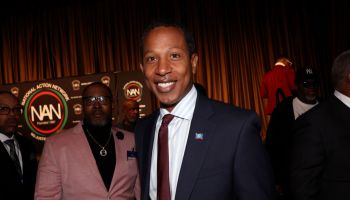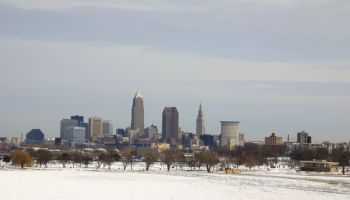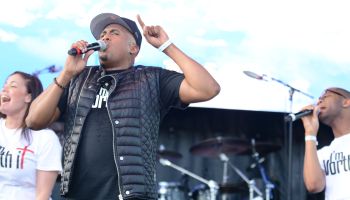Source From http://black-history.blackvoices.com
Today we celebrate the birth of Martin Luther King Jr., a man known to America and the world because of his commitment to peace: peace as the goal and as the key strategy.
If ever we needed a holiday to focus us on this ideal, it is now. I am unable to resist wondering what King would have to say about the most recent instance of American-on-American terrorism-the shootings in Arizona-but even to speculate is to be overwhelmed by irony.
An older and even wiser King might well have been here to speak to this sad occasion himself, had he not been the victim of precisely that sort of crime.
The dictionary explains that “terrorism” is “the unlawful use or threatened use of force or violence by a person or an organized group against people or property with the intention of intimidating or coercing societies or governments, often for ideological or political reasons.”
Acts like those of Jared Lee Loughner in Tucson this month and James Earl Ray in Memphis in April of 1968, whether or not committed in collusion with an organization, may silence not only the targets of their bullets, but the rest of us as well.
Dr. King’s assassination was meant to end his life and to strike fear in to those around him and in the broader public. If enough people had become afraid to continue speaking out-and writing and marching and suing and legislating and voting and protesting and boycotting-for justice and equality, the United States might still be known for other forms of racialized American-on-American terrorism, such as lynching.
Instead, as King himself had done after the first attempt on his life in 1958, millions of Americans continued to insist upon the necessity of freedom for African Americans and justice for all.
When I remember Dr. King, it is, of course, to appreciate the tangible progress toward an anti-racist society that he helped to nurture and develop, but, as a poet, I also take note of the powerful, lyrical language he used doing this work.
This year, I am called to this passage from his book “Why We Can’t Wait,” where he describes the principle that formed one of the most effective tools in his work for equal rights:
“Nonviolence is a powerful and just weapon. It is a weapon unique in history, which cuts without wounding and ennobles the man who wields it. It is a sword that heals” (12).
King’s eloquent metaphor conveys the important difference between nonviolent direct action and bloody revolution: either mode can be employed by people who seek rapid, dramatic social change, but the latter method leaves both the seekers and their opposition injured. The Civil War stands as undeniable proof of this proposition.
King’s philosophy and practices are often contrasted to those of Malcolm X during his years with the Nation of Islam, and the Black Panther Party, as both are associated with advocating violence in fighting racism.
But these ideologically different groups shared a common emphasis on self-defense, at a time when the threat of physical violence to African Americans loomed not only from racist individuals and groups, but from the very law enforcement officers whose duty it was to protect people from violent attack.
This point suggests another great irony I confront in thinking about King’s legacy this year: Those who would loudly condemn the revolutionary rhetoric of black radicals like the Panthers include some of the same people (or their ideological bedfellows) who are now wielding the rhetoric of violent revolution in a campaign to “take back” the U.S. government from other citizens who, like Representative Gabrielle Giffords and her supporters, have just as much right to participate in that government as any citizen.
This rhetoric ostensibly endorses violence against other Americans with different political beliefs-despite the fact that these others pose no threat of physical violence. Moreover, it creates a political climate that encourages people like Loughner to feel justified in targeting our elected officials for murder and leaves politicians and other kinds of politically engaged people feeling physically endangered for standing up for social justice.
Martin Luther King, Jr. Day has arrived not a moment too soon.
As we reflect on the things that King and other hard-working activists achieved together under the banner of nonviolent action, let’s remember that there remains much work to be done and rededicate ourselves to the effort of creating a just society-one without second-class citizens or third-class residents.
This means continuing to speak, write and act on behalf of freedom and racial equality, regardless of the terrorist acts intended to silence our voices and keep us away from public spaces in fear of our lives. We cannot know what Dr. King would say if he were here, but this is certainly what his example teaches.

















